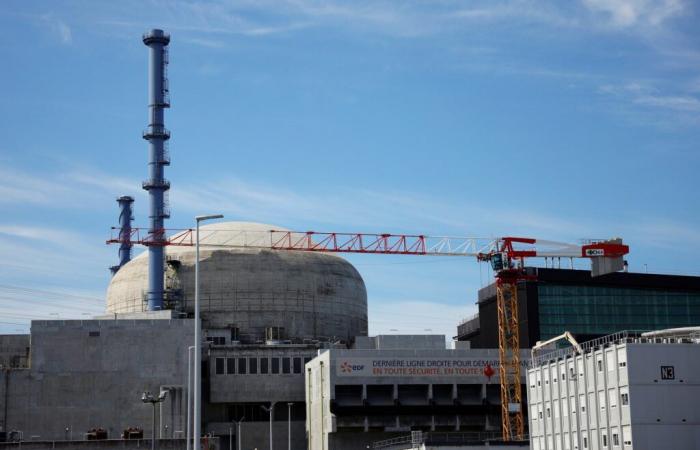
France had not exported so much electricity for more than twenty years. “89 TWh (terawatt-hours, Editor’s note): this is the exceptional value of net electricity exports from France to its neighbors in 2024. The old record from 2002 has been broken”announced Thomas Veyrenc, General Manager Economy, Strategy and Finance of the manager RTE, on LinkedIn this Thursday, January 2. For the record, in 2002, the export balance stood at 76.9 TWh.
France had already broken a record for electricity exports in one day, on November 13. This new record, after a balance of 50.1 TWh in 2023, confirms the recovery in electricity production in France, in particular EDF's nuclear production. The latter had been penalized in recent years by numerous reactor maintenance operations linked to corrosion problems.
Nuclear power has regained color
In 2022, EDF's nuclear production had fallen to 279 TWh, its lowest level in 30 years. France had also been a net importer of electricity for almost the entire year, a first in 42 years. Since then, French nuclear power has regained color. EDF had increased its nuclear production forecasts for 2024 in September, before a further upward revision on December 11, increasing it from a range of 340-360 TWh to 358-364 TWh, not including the Flamanville EPR, connected to the network on December 21.
Besides the “spectacular recovery of nuclear power in 2024”, “exceptional hydraulic production” and the “continued development of wind and solar power” contributed to the rebound in French electricity production over the past year, explains Thomas Veyrenc.
French electricity exports in 2024 concerned all border countries, according to the RTE representative: Germany and Belgium (with a positive balance of 27.2 TWh), Italy (+22.3 TWh ), the United Kingdom (+21 TWh), Switzerland (+16.7 TWh) as well as Spain, to a lesser extent (+2.8 TWh).
Low electricity consumption in France
This record was, however, made possible by the fact that “French electricity consumption remains low”which is “more problematic”, notes Thomas Veyrenc. “Transfers in the use of fossil fuels towards electricity have not been initiated at the level required to deeply decarbonize”he notes.
“2024 consumption is still behind the average for the years 2014-2019”reference years before Covid and before energy crisis, explained Thomas Veyrenc last November. “We are still around 6% below these values”he added.
As a reminder, consumption had fallen significantly from the fall of 2022 due to the surge in energy prices and calls for vigilance. The threat of power cuts was then all the greater as many nuclear reactors were shut down due to corrosion problems.
RTE also reported in November that if electricity consumption remained at a “low level”it had stopped decreasing, unlike in previous years. “It seems to have reached a level from which it would gradually increase over the coming years”indicated the manager.





